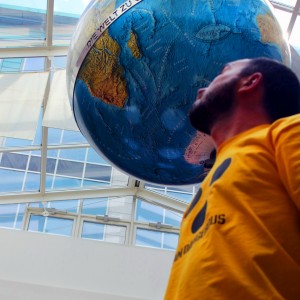Ladies and gentlemen,
Dear friends,
It is a great pleasure and an honour to welcome you on behalf of the Organizing Committee to the17th Retina International World Congress in Hamburg (Germany).
‘Gateway to Vision’ is the theme of this important conference, where researchers and patients with degenerative retinal diseases and their family members meet from all over the world.
In a number of talks, researchers will report about clinical trials that are ongoing for many of the devastating degenerative retinal conditions. The latest developments in research on AMD, Retinitis Pigmentosa, Stargardt Disease, and Usher Syndrome will also be presented. You will hear about advances made in understanding disease pathogenesis, most recent results in genetics, gene therapy, neuroprotection and stem cell research. Furthermore, you will learn about a variety of technical aids and ways that may help making your life with a retinal degeneration easier.
You will also have the unique opportunity to meet the researchers leading the field in retinal research and share your experience with peers from all over the world.
We wish you all a rewarding conference and looking forward to meet you!
With warm regards.
Christina Fasser
President
RETINA INTERNATIONAL
With these words the President of Retina International, Christina Fasser, opened the conference the weekend of 14th and 15th July, the last two days of a week of events and meetings for those who live and work with and for degenerative diseases of the Retina .
In the previous days were held other meetings and workshops including what I would point out the one for young RP, which unfortunately I did not attend, but from the feedback received it seems it was an occasion to meet, discuss, share and acquire knowledge.
Engaged in the promotion of The Visionary Europe, I was not able to attend many conferences, but I had the feeling that they were very similar to those I heard in 2010, during the 16th edition of the same Congress which was held in Stresa, by Lake Maggiore in Italy. Perhaps to hazard a comment like this I should have listened to the details, but in some cases they are so technical that even though I listened to word for word I could not grasp the differences compared to the same topics covered two years ago.
The research is advancing slowly, especially with regard to Retinitis Pigmentosa and other retinal diseases, but I think for those who have never heard of genetic therapies, experiments, tests, developments, it is an important event which you can have the opportunity to attend because hosted in different cities every two years.
One of the news I heard about the Optogentica.
I avoid going into details and refer to the extract of the conference Prof. Gerald J. Chader
Future Treatments for RP and Other Rare Retinal Degenerative Diseases
Very interesting the
General Session 4 – Coping with RP
I paste the program for a complete and clear reference.
Sunday, 11:30 – 13:10
| 11:30 – 12:00 | Stress or Challenge: Reflections on how to disability-induced strain without damaging your health Eva Maria Glofke Schulz, Rosenheim, Germany |
|---|---|
| 12:00 – 12:20 | How do I live as an RP patient Michael Herbst, Marburg, Germany |
| 12:20 – 12:40 | Perspective of family members Ingrid Pasker, Heidelberg, Germany |
| 12:40 – 13:00 | From the Parents’ View Stephen F. Jones, Buckingham, UK |
For those who understand the German language, I would suggest the book
Löwin im Dschungel – Blinde und sehbehinderte Menschen zwischen Stigma und Selbstwerdung by Eva Maria Glofke Schulz.
In this book you will find many interesting reflections on how to deal with Retinitis Pigmentosa. There are many books on the subject. In this case the writer is a psychologist, as well as blind.
In the abstract fo the presentation a sample of the topics
Michael Herbst of DVBS e.V, presented five conclusions that often arise in the counseling of people who are becoming blind.
Ingrid Pasker, wife of an RP, has outlined some thoughts on what it takes to be a family member of a person with RP and identifies some suggestions:
- accepting life as it is,
- letting go losses, dreams no longer to be realized, relations
- which have become blank – all that in order to get independent and free for
- the tasks lying ahead,
- organizing mutual, positive experiences together with the persons
- suffering from retinal degeneration,
- looking upon them as personalities of their own, not being aware of their
- deficits in the first place, keeping that in mind and making it plain to
- the outside world,
- realizing one’s own limitations and leaving the whole responsibility for
- their lives to the persons involved.
In the end Stephen Jones, a member of the Board of Trustees of the British patients’ organisation, RP Fighting Blindness. His son Ben was diagnosed with RP at the age of 8 in 1987 and is now 33 years old. The presentation was a personal story of the journey from the time of receiving the shocking news of the diagnosis, followed by anger, then acceptance and a determination to support Ben in reaching his goals in many areas of life, including education, work, family life and, not least, satisfying an adventurous spirit. The presentation also noted the very important role played by the patients’ organisation in providing information and support.
The Congress ended with an invitation to that of Paris in 2014 and the words of Christina Fasser, before a ‘What a Wonderful World’ played with the trumpet

